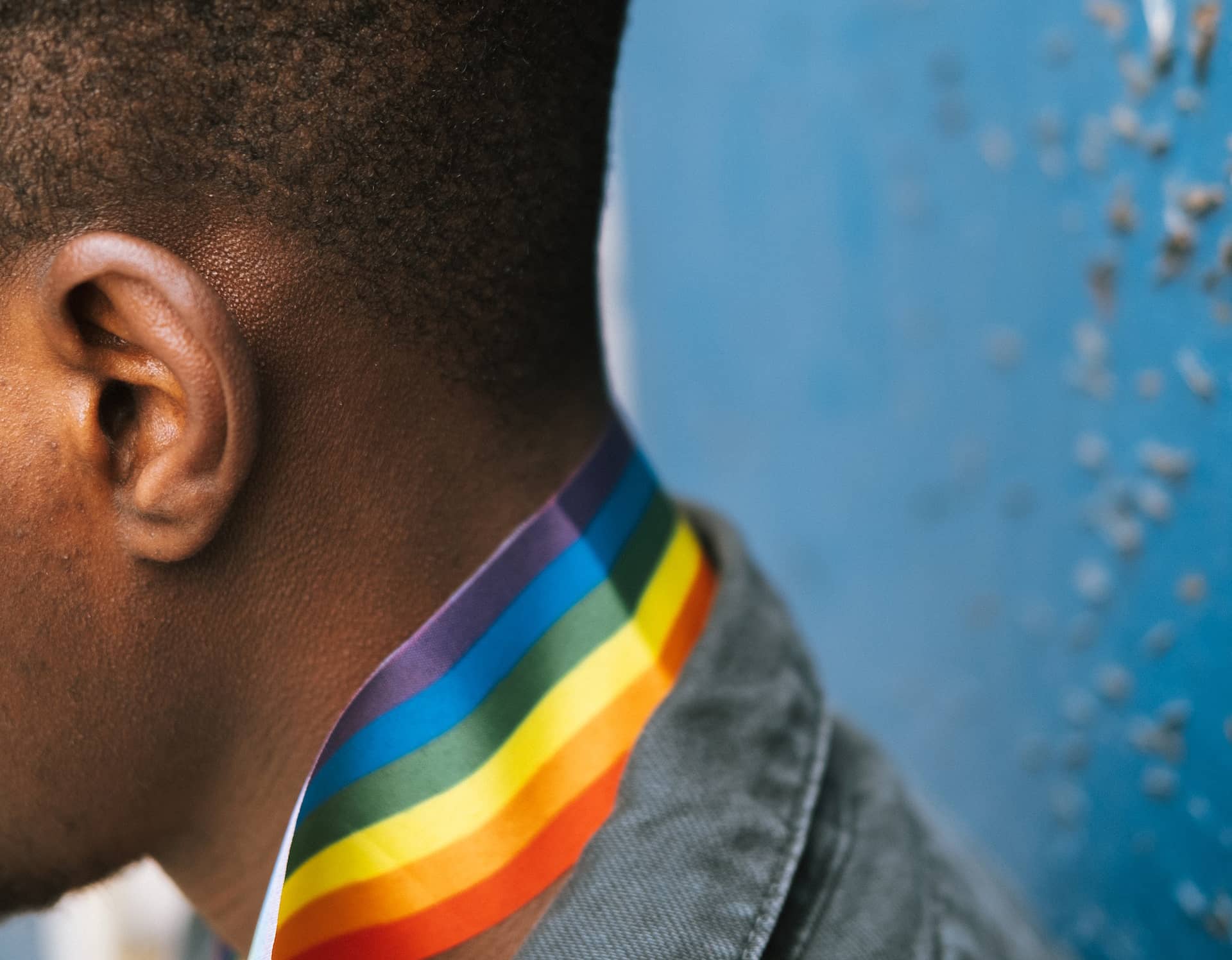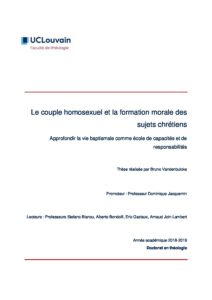This essay is adapted from an essay originally published in ‘First,’ an online publication of the Catholic Theological Ethics in the World Church.
What makes ethics such an exciting field of study is that we work towards bringing the core insights of the Gospel to bear on the most pressing questions of the day. We know that dialogue is indispensable. We know that there will be disagreement. But we know also that this disagreement, when we are working at our best, takes place within a wider horizon of unity that descends in no small part from the source and summit of our faith, the Eucharist.
Yet when issues related to sexuality and gender identity arise in my particular context living and working within the United States, I find that it is increasingly the case that the ethical discourse within our church is becoming more colonized by the polarized nature of our political discourse. Dialogue is fraught, not least because the definitions we bring to core Gospel values diverge. When we say that we “love” members of the LGBTQ+ community, for example, does this love require acceptance of their own self-understanding and of their families, or does love rather mean something along the lines of “loving the sinner, but hating the sin”? Beyond this, the collegial nature of our work is also ideologically divided—do we attend annual meetings of the “progressive” Catholic Theological Society of America, or the “faithful” meetings of the Academy of Catholic Theology?
It’s asking these sorts of questions that has caused me to shift my attention from thinking only about producing arguments about ethical questions to thinking critically about the circumstances surrounding our ethical discourse itself. What are the facts on the ground that generate the context in which we produce our ethical arguments? Which tactics are being used to change those facts on the ground? Can any insight be gained from historical comparison across contexts? My hunch is that ethically significant data for us who work on issues related to gender and sexuality within Catholic moral tradition lies here, even if its significance for making ethical judgments about the matter in question is indirect.
And in this short dispatch, I propose that using the lens of the African-American Catholic experience can draw some of these insights forward.
Consider the state of the ethical discourse around homosexuality and the morality of homosexual acts. In the United States, the theological energy around this question, which began to pick up speed in the 1970’s, has over the last half-century of debate consolidated to the point where the major positions taken are virtually mutually exclusive. The official teaching of the Catholic Church presumes an anthropology structured by the gender complementarity articulated by Pope John Paul II and ends with the judgment that homosexual acts are gravely sinful because they offend this complementarity.{{For John Paul’s argument, see his Man and Woman He Created Them: A Theology of the Body, trans. Michael Waldstein (Boston: Pauline Books and Media, 2006).}}
All revisionist responses to this question that defend the theological legitimacy of homosexual sexual relationships have to deny that the compatibility relevant to sexual relationships requires John Paul’s account of gender complementarity (and the metaphysics of gender that undergird it) to be true. Now there are, of course, interesting scientific questions to be engaged here (particularly within biology and psychology), but the crux of the matter is actually theological, insofar as any findings within the natural or social sciences relevant to homosexuality ultimately underdetermine questions about morality. Instead, predominant in the argumentative calculus is John Paul’s claim that his account of gender complementarity (and the metaphysics of gender that undergird it) is affirmed through Scripture and the Church’s tradition.
As a consequence, over the decades we have witnessed arguments that either seek to confirm that these conclusions putatively based on scripture and tradition are true, or we have witnessed arguments that essentially argue that our past interpretations of Scripture and tradition must change.{{This strategy has been deployed most recently by Stephan Goertz, ed., “Who am I to Judge?” Homosexuality and the Catholic Church (Boston: De Gruyter, 2022).}} But, once again, because the problem of the morality of homosexuality within the Catholic tradition is, at its base, metaphysical, it is not entirely clear what it would mean to disprove the account employed by John Paul II. And all of this becomes even more complicated when one adds in questions of magisterial authority.
As a moral theologian examining the structure of this discourse through an African American Catholic lens, I find myself very wary of positions taken that provide theological justification for the suffering experienced only by a subset of humankind—not least because such arguments were deployed around the existence of chattel slavery in the United States.
Emboldened by specious theological anthropologies (like the one that explained the enslavement of blacks as a consequence of the “Curse of Ham” in Genesis 9), writers like Jemar Tisby explain in devastating detail how white Christian slaveholders defended the practice of slavery on grounds that the dehumanizing experiences the slaves endured would ultimately redound to their moral benefit through their contact with a “nobler race.”{{Jemar Tisby, The Color of Compromise: The Truth about the American Church’s Complicity in Racism (Grand Rapids, MI: Zondervan, 2019), 70-87.}}
I would contend that there is an analogous situation here—not a perfect one, to be sure, but one that I think is illuminating nonetheless. Describing it not exactly as a curse, yet at the same time regarding it nevertheless as problematic, the Catechism considers the inclinations associated with “homosexual tendencies”—what many of us would simply call a homosexual orientation—to be “objectively disordered” (CCC 2358). From the testimony of many homosexual people, this orientation is experienced simply a part of their existence, as something that cannot be changed. Official church teaching recognizes this, and in consequence instructs those with homosexual tendencies to “unite to the sacrifice of the Lord’s Cross the difficulties they may encounter from their condition” (CCC 2358), presumably to achieve some sort of positive resolution to the suffering that results from managing their condition.
In other words, the suffering on the part of homosexual persons comes from managing their condition in light of the Gospel truth about who they are. And these sufferings can further united to Christ’s own in a way that gives salvific meaning to that suffering. By analogy, in the white Christian slaveholding imagination, the suffering endured by enslaved Africans comes from “managing” their inferior condition after having come into contact with white evangelizing Christian slaveowners, who in turn help enslaved Africans put their suffering to good (salvific) use.
But could it not perhaps be the case that, in both cases, their suffering comes not from their natural conditions but rather from having to endure teachings that are dehumanizing—teachings that anticipate and explain why these groups of people suffer?
“A similar reaction emerges when I consider the state of our ecclesial discourse when it comes to transgender identity—except this time, it is not slavery that comes to mind, but rather, segregation.”
A similar reaction emerges when I consider the state of our ecclesial discourse when it comes to transgender identity—except this time, it is not slavery that comes to mind, but rather, segregation, the legally enforced separation of black people from white people at a certain point in US history.
Over the course of the last several months, a number of dioceses in the United States have released policies that severely restrict the freedom that transgender persons have in Catholic spaces.{{See a short analysis of these sort of policies in my “New anti-trans policies move church from vital core teachings,” Conversations on Jesuit Higher Education, February 27, 2022.}}
In some of the most severe cases, as in the case of the Diocese of Marquette, Michigan, transgender people may not be “Baptized, Confirmed, or received into full communion in the Church, unless the person has repented” (IV.A.4). What the policies effectively produce is the segregation of transgender persons from Catholic spaces. And just as in the case of homosexuality considered above, such rules are once again applied to an aspect of their being that they experience as beyond their control. Unlike the state of discourse with respect to homosexuality, however, serious theological engagement with the experience of transgender persons is just emerging. (In fact, the first Vatican document engaging transgender identity was released only in 2019.) What we need to do in order to properly understand transgender experience is time, not separation. In the words of Pope Francis, we must build bridges, not walls.
Otherwise, the consequences for the Church are going to be enormous. Once again, I am drawn back through the African-American Catholic imagination to the point of time right before the Civil War. At this point in time, all the mainline Protestant denominations—the Methodists, the Presbyterians, and the Baptists—split over the question of slavery. Today, with respect to homosexuality, the Methodist Church has split once again. As debates about gender and sexuality continue to divide our Roman Catholic Church, will we find a different way?




